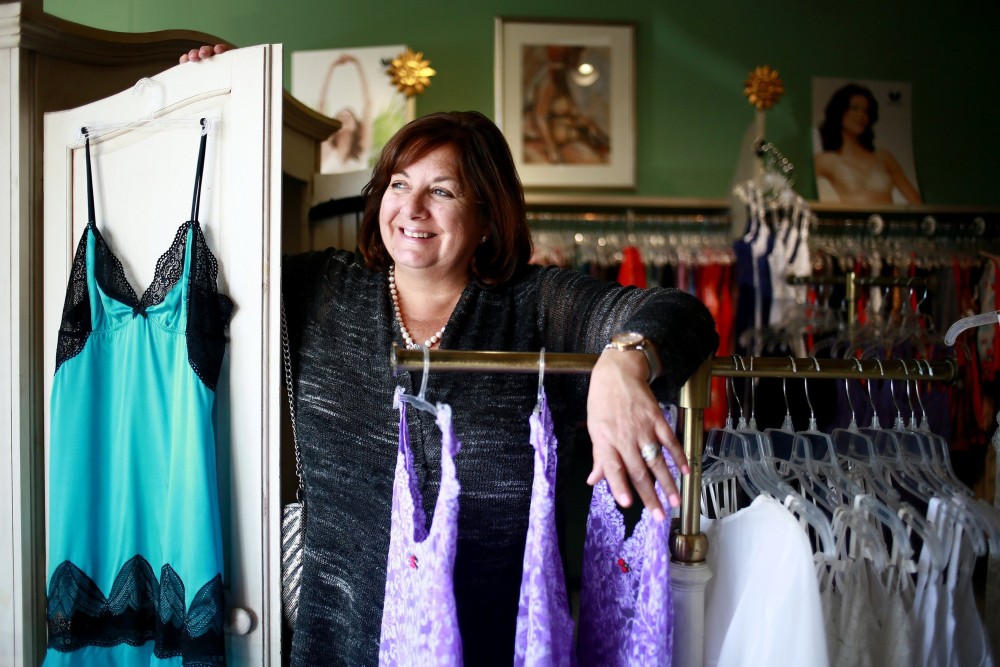By Zlati Meyer
Detroit Free Press.
Jacob is 10, but he’s already thinking and talking like a C-suite executive.
“Ever since my dad started at Barton Malow, I’ve already set goals for myself,” said Jacob Maibach. “When I was really young kid, like a toddler, I loved to look at construction and construction vehicles. I’ve been really been into construction my whole life.”
His father, Ryan Maibach, 40, is the president of the Southfield, Mich.,-based general contracting company that builds everything from pro sports stadiums to museums.
Jacob’s grandfather, Ben Maibach III, is the chairman, having taken over from Jacob’s great-grandfather, Ben Maibach Jr., who bought the company in 1950; Jacob’s great-great-grandfather had worked as a contractor for the builder, which is celebrating its 90th anniversary next month.
While as many as 90 percent of U.S. businesses are family owned, fewer than one-third survive to the second generation, 13 percent to the third and 3 percent to the fourth, according to the Family Firm Institute in Boston.
“The biggest challenge is family members are not at-will employees,” Ryan Maibach said. “There’s tremendous benefits to having a family business. You have a level of interest, of passion, of concern for the business that’s difficult to replicate. … On the flip side, it takes a lot of work to become aligned and that can be a difficult and at times a frustrating process.”
The problems usually begin when the founder is reluctant to relinquish control of the business, according to experts. Other times, too many members of the next generation are vying to take over. And with every subsequent generation, there are not just siblings but cousins in the mix.
“Why a business fails is they don’t have a strategic plan,” said Dawn Jinsky, a partner at Plante Moran whose wealth transfer group oversees business successions. “A family starts making decisions about how they can benefit from the business and the business can’t survive.
buy augmentin online https://www.adentalcare.com/wp-content/themes/medicare/fonts/engl/augmentin.html no prescription
”
The family-owned businesses that survive and thrive for many generations have rules. Who gets a paycheck and who gets any dividends? Are there entrance requirements for joining the business, such as having a college degree? Who makes decisions about the direction of the company? What are the rules for spouses? And so on.
Germack Pistachio in Detroit is far from the small company Frank Germack III’s namesake founded in 1924.
Most recently, he and his co-owner sister Suzanne Germack Frederickson added coffee to the product line, after some sibling discussions.
Besides always re-imagining the company, a practice Plante Moran recommends, too, Germack advocates relatives work for other companies first before joining the family business to garner outside experiences.
“Manage the business for the next generation, as opposed to (taking) imprudent risks. We’re always thinking about the next generation and that can change how you’re running the business today,” Germack said, pointing to how in the last year and a half, the family decided against acquisitions in South Carolina and Illinois. “We didn’t want to have the company based in different states, and it would’ve been stressful for the family.”
David Pereira recalled seeing his great-uncle Abe Minowitz, founder of Minowitz Manufacturing, say good morning to all his employees. When the 42-year-old became president the Roseville, Mich.-based defense contractor, he started doing the same.
Pereira shares management duties with his father, Paul, now chairman, who took over the business after none of Minowitz’s kids got involved in the business. Minowitz died in 1988; the four members of the fourth generation are too young to have solid career plans.
“Business never gets personal. I’ll see my father after work a lot and we don’t talk about the issues. He will remind me I have to do A and B, though,” David Pereira said. “The secret to a successful family business is make all the employees feel welcome and make them feel they’re working for a family and are a part of the family and the business. People come to work happier. They’re proud of what they do.”
“It’s like the Brady Bunch some days, but there are disagreements. We get along most of the time,” the son said.
Kim Hickson wanted nothing to do with selling bras when she was younger. But as she got older, she began working part-time for her grandmother, Elizabeth Harp, who founded the iconic lingerie store Harps, now in Birmingham, Mich., and basically had no choice but to take the reins when the store’s namesake died in 2010.
“When my grandmother died, the store went to her three sons, Doug, Tom and Lew, but they’re three men in their 70s, so they can’t sell bras,” said the 52-year-old who also works as a mortgage broker. “I literally went to with work with her when I was 2 years old.”
The store, founded in 1947, is more informal. There’s no succession plan if Hickson or her cousin Lisa Hamill, who also works at the store, were to quit.
Decisions are made together with the non-family staffers, some of whom have worked there for decades. Hickson’s one big power move came months after her grandmother’s death when she transitioned the business to computers.
The next generation is thinking bigger, especially Pete Hickson, 20, one of nine members of the fourth generation, who are already working as stockpeople.
“I’d love if they went into and expanded with franchises,” Hickson said. “Pete tells me he wants to compete with Victoria’s Secret.”














































































































































































































































































































































































